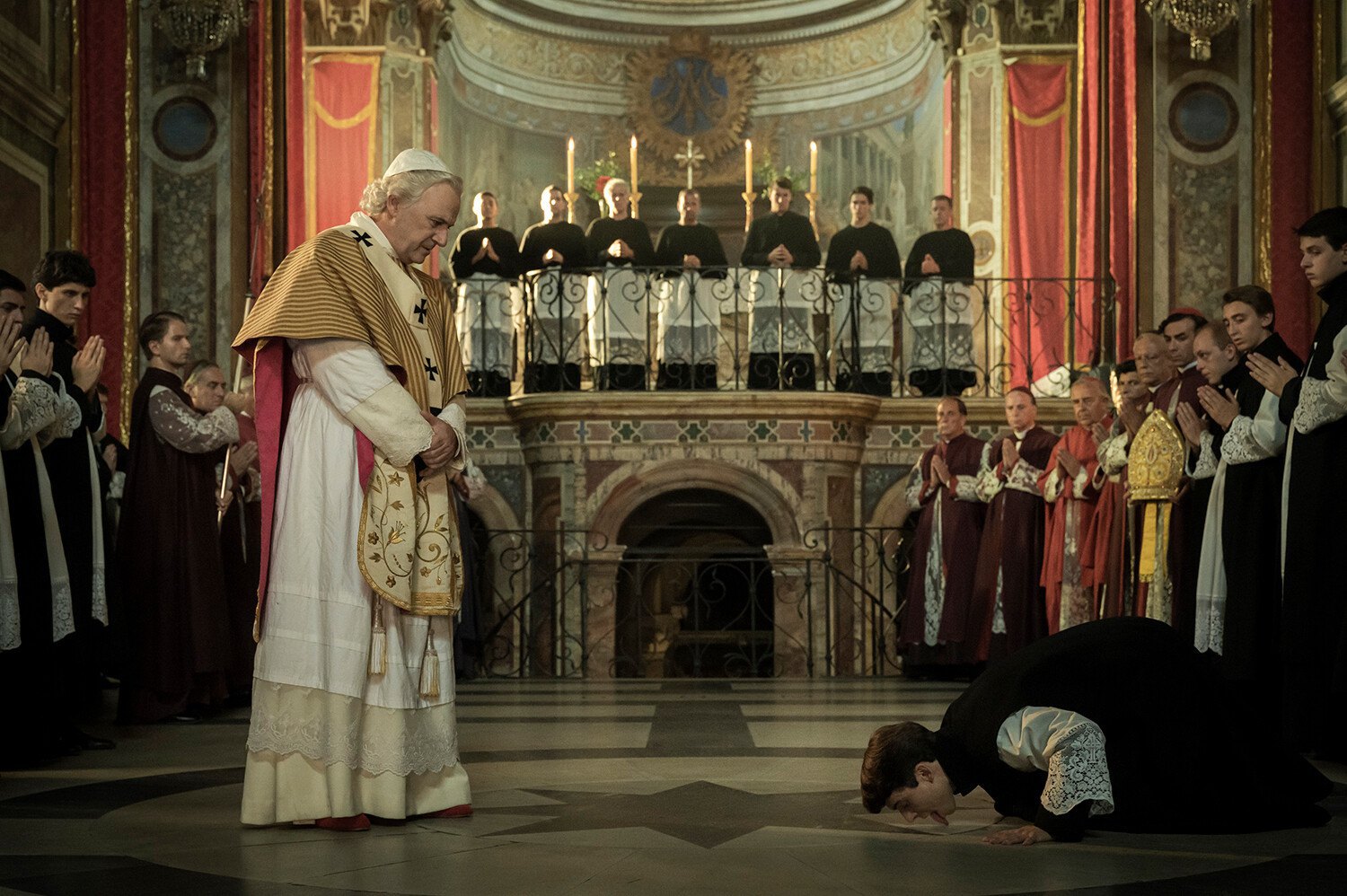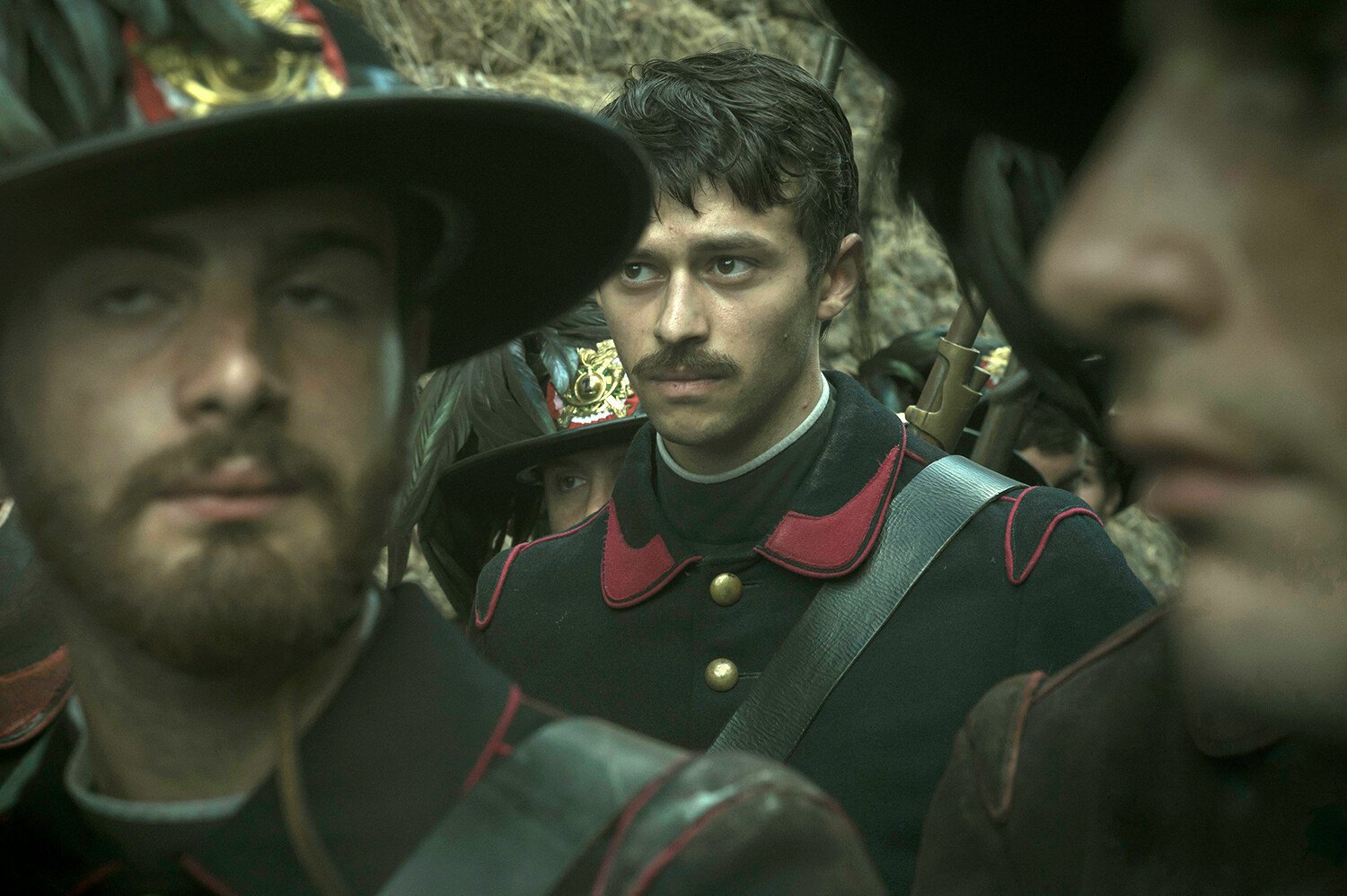Seven-year-old Edgardo Mortara (Enea Sala) is the middle child of Momolo (Fausto Russo Alesi) and Marianna Mortara (Barbara Ronchi), a prominent Jewish family in Bologna. One night in 1858, the soldiers of Pope Pius IX (Paolo Pierobon) come to take the child away, claiming that he had been secretly baptised earlier. As it turns out, this was done by a Catholic maid, Anna (Aurora Camatti), who wanted to save the baby’s soul so that it would not go to purgatory. Despite the family’s protests, the boy is taken to Rome for re-baptism and a proper Catholic education. While his father desperately tries to overcome the injustice, Edgardo decides to be compliant and play the role of a diligent student – hoping that his cooperation will help him return home.
The situation is further complicated by the political context, as the Risorgimento – a military campaign to unite Italy – is underway. The Papal State, which controlled Bologna at the time, opposed the revolutionaries. The local representative of the Pope, Inquisitor Felletti (Fabrizio Gifuni), who ordered the child’s removal from his parents, has unlimited power over the Bolognese. Of course, the Vatican actively uses the precedent of Edgardo to demonstrate its power – the boy becomes a favourite of Pius IX and his chief adviser, Cardinal Antonelli (Filippo Timi).
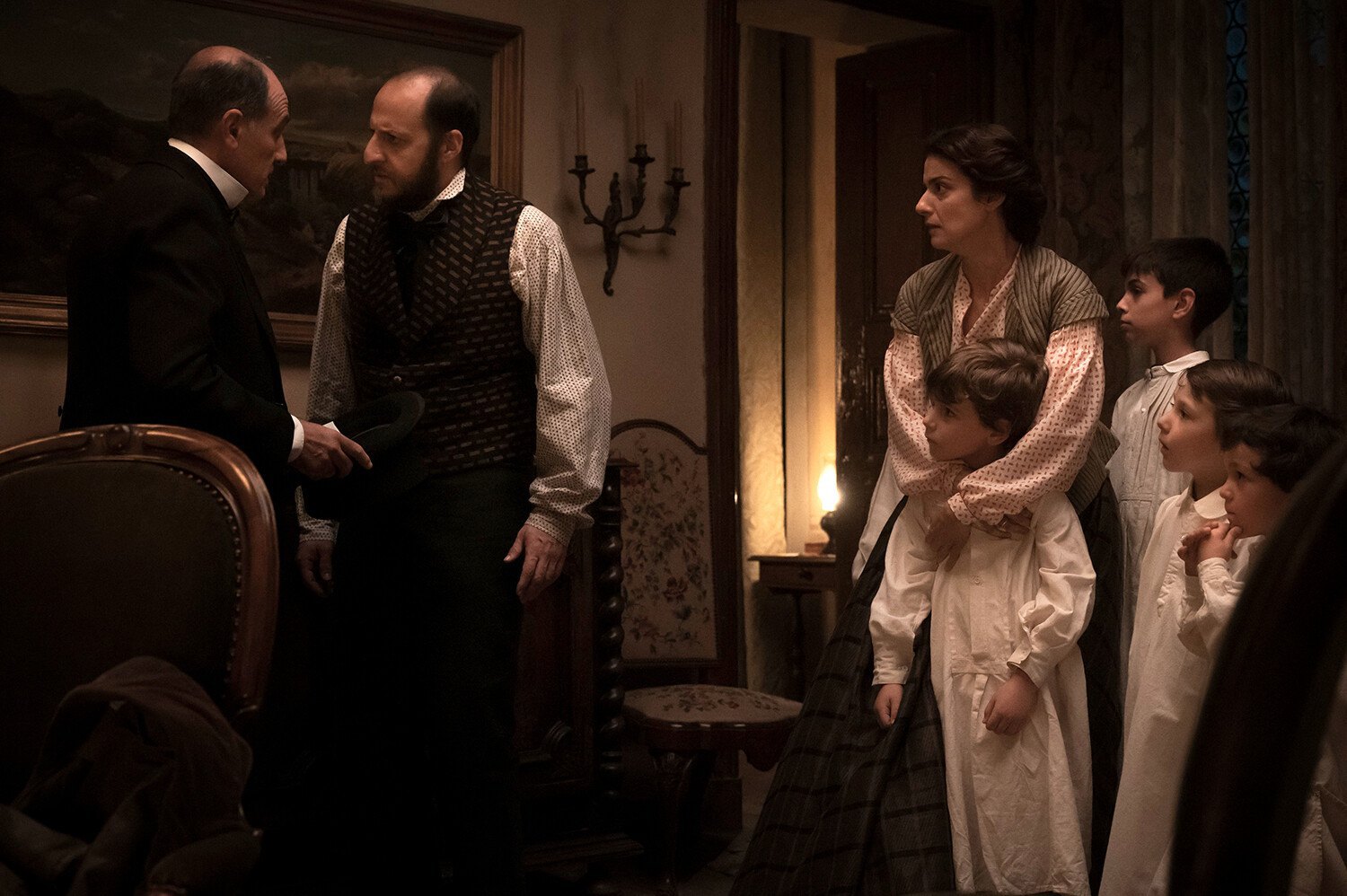
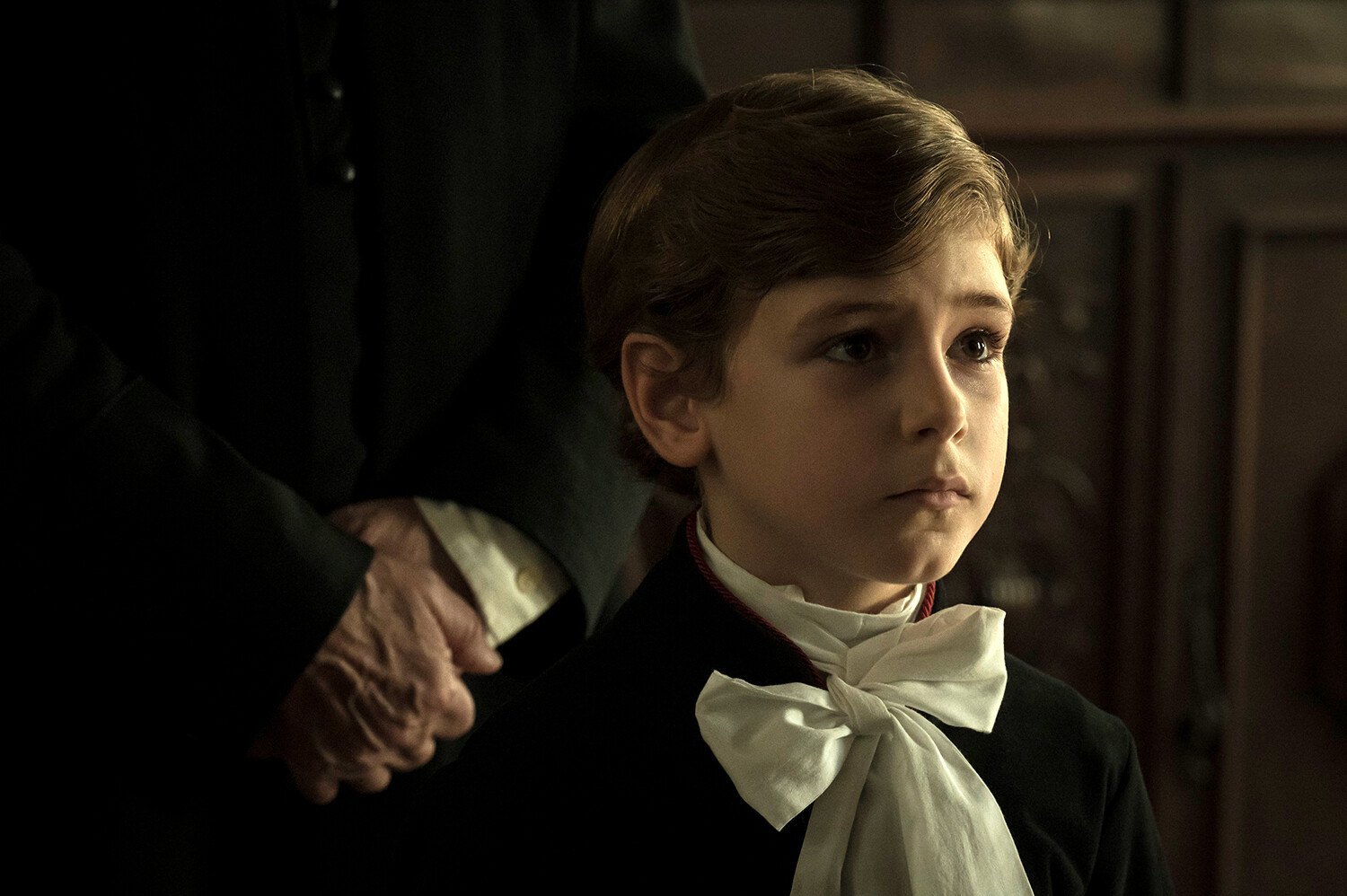
Marco Bellocchio is an 85-year-old classic of Italian social realism, the author of such films as Fists in the Pocket (1965), China is Near(1967), The Devil in the Flesh (1986), and The Conviction (1991). His strict Catholic upbringing, on the one hand, and his left-wing beliefs (he was a Maoist for a time), on the other, led him to make films that were critical of the Holy See – Kidnapped continues in this line.
Anything critical of the Catholic Church in Italy becomes a topical gesture, no matter what historical period it covers. After its premiere in the main competition of the Cannes Film Festival, the film received a strong reaction in Europe, grossed over four million dollars at the Italian box office, received a César nomination in France and five David di Donatello awards (the Italian equivalent of the Oscar).
The script, co-written by Bellocchio and Susanna Nicchiarelli (author of the rock biopic Nico, 1988), documents the circumstances of Edgardo’s abduction and the first attempts to recover him in a detailed and unhurried manner. However, this thoroughness does not extend to the drama. Thus, Enea Sala and Barbara Ronchi (as Edgardo’s mother) act touchingly, with all the power of Italian melodrama. But later on, when the situation becomes more complicated, when Edgardo’s character and motivations change, this is not worked out in any way – either in the direction or in the acting. A striking and somewhat provocative exception is a dream in which Sala’s character takes the nails out of Christ’s hands and feet, bringing him back to life.
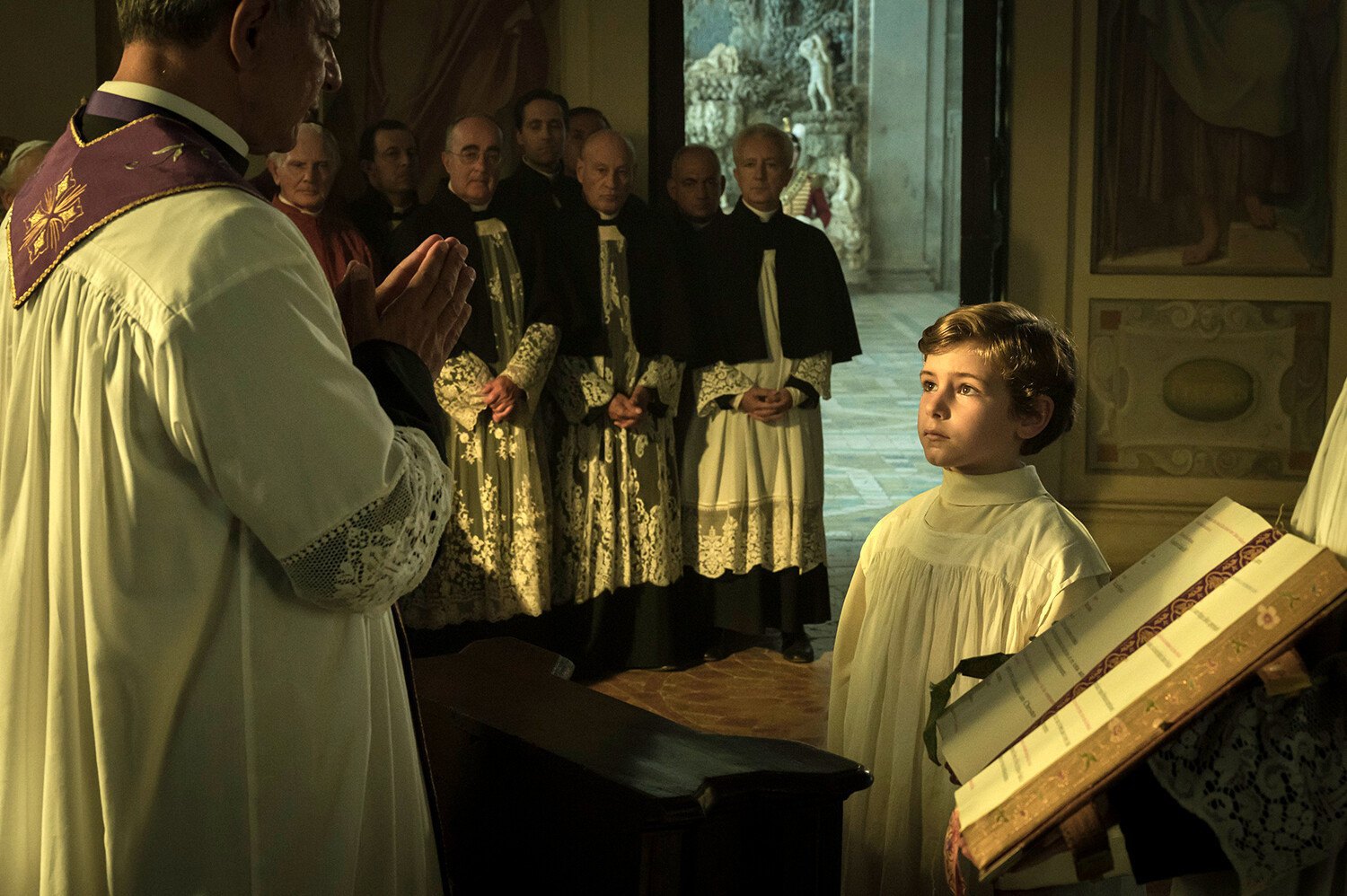
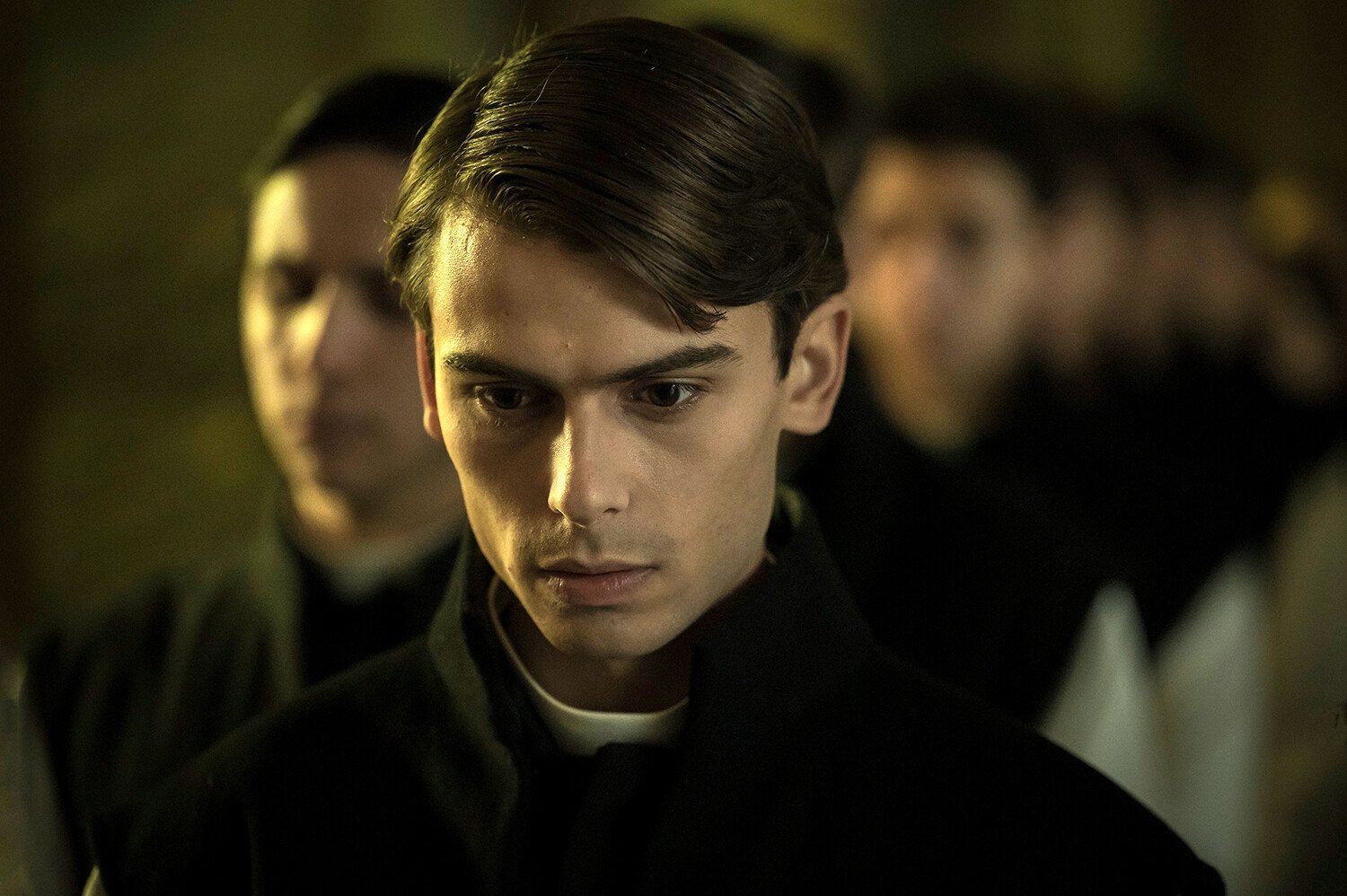
In fact, Bellocchio falls into the trap of the costume film genre – when the frame becomes more important than the picture, when the outfits displace the people. And there is nothing wrong with the costumes, the historical atmosphere, the surroundings. The costume designers Sergio Ballo and Daria Calvelli did a great job. The interiors and streets of Italy in the 1850s and 1870s (the film’s set designer is Andrea Castorina), the everyday nuances down to the boiling wax for the inquisitor’s seal – all of this impresses with authenticity. The cinematographer Francesco Di Giacomo simply paints every frame – some scenes look like paintings of the time. The only thing that this visual splendour regularly lacks is the sharpness of the drama – the necessary level of generalisation that would make the canvas more important than the frame.
And yet, despite the distance in time and space, Kidnapped is a surprisingly relevant film for us. Because what the greedy Pope once did to us, Russia is doing to us now: kidnapping our children, separating them from their parents, brainwashing them, making them forget their roots and culture in order to turn them into mankurts – ready to defend their captors.
This story is all too familiar to us. And for this reason alone, Kidnapped is worth watching.
